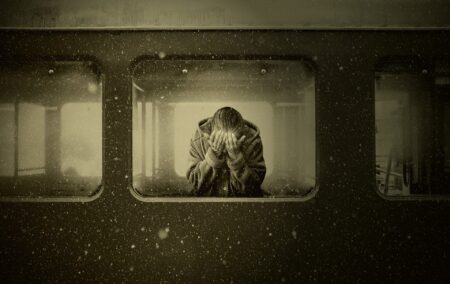By now we all know the numbers and the scale of the crisis that South Africa faces.
On the expanded rate of unemployment, nearly 50% of all South Africans are unemployed. This has significant broader implications for South Africa, with fewer people contributing to the economy and not being able to provide for themselves and their families. This also results in people defaulting on debts or other payments, which has other economic knock-on effects, further retarding South Africa’s economic progress.
This is before we even consider people who have never worked in South Africa and probably will never work, thanks to a combination of poor education and a lack of economic opportunities. A person that has just finished matric in the rural Transkei and does not have the means to study further could well be condemned to a life of unemployment, with all that this means for the person’s dignity and future hopes.
Which is what it comes down to – behind the unemployment statistics or poverty numbers is a real person, with all the hopes and dreams each of us have.
Hawking
This was brought home to me on Saturday when a friend and I were having a drink at a local watering hole. As is common in South Africa, particularly its big cities, a hawker approached us, selling his wares, in this case socks and dish towels. We began speaking to the fellow who, it turned out, was a trained teacher also in possession of a marketing degree who had just recently made his way to South Africa from Harare. He told us how he had given up his marketing job with a company in the Zimbabwean capital as he was simply not being paid enough and he would do better coming to Johannesburg to peddle goods south of the Limpopo. He was also hoping to make enough to support his wife and three children who were still in Harare, as well as making enough money to buy his wife a laptop and help her complete her studies to become a chartered accountant.
Now of course there is nothing wrong with selling goods to people in pubs, but it’s telling that the man I met on Saturday gave up an office job in Harare to try his luck in this country, selling dish towels and socks, with all the uncertainty that comes with being a foreigner trying to make his way abroad, especially in a country with South Africa with our well-documented history of xenophobia.
And this reflects my point that behind statistics of unemployment or economic and other refugees are real people who have had to make sacrifices or give up dreams. The disastrous land reform policy implemented in Zimbabwe over two decades ago now, coupled with the printing of money which led to hyperinflation and the destruction of savings and the Zimbabwean dollar, is not some abstract event or a footnote in an economics textbook. Bad policies have real consequences and can destroy people’s lives.
Bad policies
Bad policies, which lead to economic regression, have real consequences and destroy the potential of people. One of the worst aspects of apartheid was its destruction of human potential, with people denied opportunities and the possibility of becoming the best person they could be, simply because of the colour of their skin.
And we see this continue today. While Zimbabwe’s failed policies are not on the same level of depravity as apartheid they have also led to the destruction of human potential on a similar level. And South Africa risks falling into the same trap.
South Africa continues to motor headlong into an economic death spiral. Recent events, such as the inferno in Parliament are emblematic of a state that has lost control and, perhaps even more worryingly, has no interest in even attempting to regain control and begin to govern efficiently.
At the same time, policies which are guaranteed to further kneecap South Africa’s development, such as expropriation without compensation (EWC) and the National Health Insurance scheme continue to be punted by the government. Despite the setback the government received in December in its push to take the property of citizens without paying for it, it still seems to want to implement EWC in some way.
Destruction of human potential
If South Africa continues on its current path, even more human potential will be destroyed. Already those with the means are looking abroad for a future for themselves and their families, and this will continue at an even greater pace (if possible) than at present. And even more people, like our hypothetical recently minted matriculant in the rural Transkei, will be condemned to a life of penury and hopelessness.
And South Africa’s continued economic regression has consequences far beyond our borders. People from southern Africa and further afield have been coming to this country to seek their fortunes, or just a better life, for generations. A South Africa which is no longer a functioning economic entity will affect people not just in Bloemfontein or Kuruman, but also in Blantyre and Kinshasa.
Bad policies have real consequences and affect real people. It’s time to stand up against them.
If you like what you have just read, support the Daily Friend

